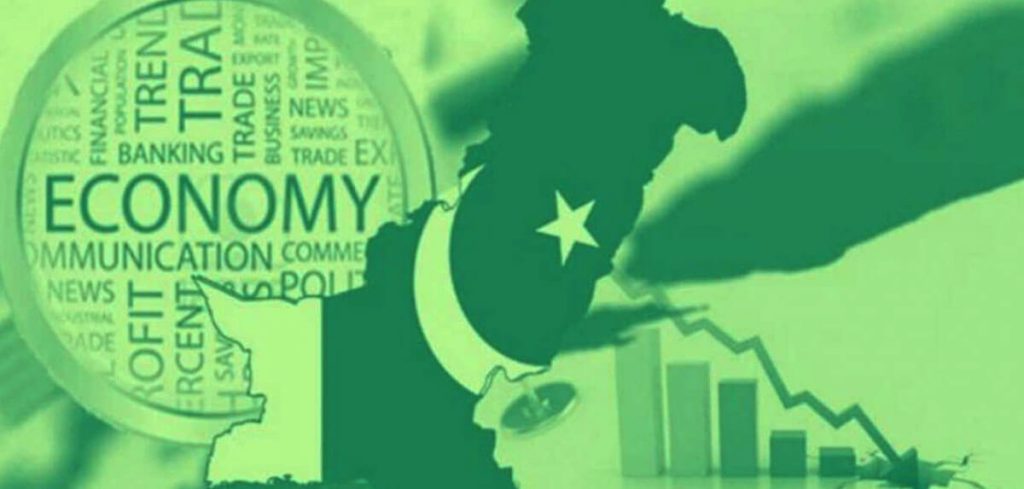There are pockets of political instability, economic uncertainty, and social upheaval in Asia, South America, Africa, and even Europe. The energy crisis afflicting European nations has global repercussions. Governments face significant issues in the wake of inflation that doesn’t appear to be “transitory” at all. Pakistan is the most recent victim of this political instability, which could extend to other nations.
Pakistan’s political tug-of-war
Pakistan’s economic crisis has entered a crucial phase, as the cash constraint is rapidly straining the supply chains of necessities, with eventual collapse looming. The financial policymakers have spent valuable time giving rise to speculation that factors other than economics are at play in the crisis, the resolution of which has become the central point of disagreement. While it is still being determined what such concerns could be, they are vital enough to support the ongoing crisis. Many analysts believe that until a good settlement is reached, the likelihood of the issues being resolved is improbable. A brief scan of the speeches and statements of successive government representatives in Pakistan over the last two decades will lead an objective observer to the conclusion that there has been a consistent pattern of each government criticizing the economic management of preceding governments, praising their own policies and programs, and complimenting themselves for doing a better job, but in reality, adhering to similar short-term, and short-sighted, approaches to economic management.
Mr. Khan came to power in 2018 with the open support of the security establishment, but his government needed to be improved by efficient coalition management and governance. As Pakistan’s economic crisis intensified and tensions between Prime Minister Khan and the military establishment escalated, a coalition of opposition parties seized the opportunity to introduce a vote of no confidence against him. Instead of facing the vote of no confidence in parliament and calmly admitting loss, Mr. Khan attempted to maintain power through extra-constitutional measures. In the end, the Supreme Court of Pakistan intervened, with the help of the army’s top brass behind closed doors, to guarantee that the vote of no confidence occurred and a new administration was sworn in.
The Pakistani rupee plunged 9.6% versus the dollar on January 26. This is the most significant one-day decline in almost two decades. The currency problem is so severe that hundreds of foreign containers containing food and medical supplies have been detained at ports for weeks because officials lack the funds to pay for them. To avoid a default, it will be difficult for the administration of Prime Minister Shahbaz Sharif to convince the International Monetary Fund (IMF) to renew Pakistan’s loan.
The administration must decide whether to continue Khan’s costly and unsustainable fuel subsidies, which the International Monetary Fund requires to be eliminated as a condition for renewing Pakistan’s loan program. Removing subsidies would undoubtedly be controversial, which concerns a government with a short time left in office before the next election. However, against the recommendation of its own finance minister, the administration said earlier this week that it would sustain subsidies.
The coalition government, the military-intelligence complex, and ex-prime minister Khan are the three most important actors. The current army head, General Qamar Javed Bajwa, is reluctant to interfere directly in politics because he is still wounded by four years of backing Mr. Khan. Prime Minister Sharif is a capable administrator, but his regional background may translate poorly to national politics. The sooner he resolves some of Pakistan’s economic issues, the better it will be for him, regardless of when the next election is conducted.
If the economic crisis in Pakistan persists, the public may forget that Prime Minister Khan is responsible for the catastrophe. Mr. Khan would attempt to sow disorder, believing that the more he drives Pakistan to the brink, the more probable it is that the army would assist him in returning to power as the savior.
Will Pakistan default?
Pakistan has approximately $3 billion in reserves versus $126 billion in external debt. In December 2022, Pakistan was certainly going in the direction of Sri Lanka. Nonetheless, we did not default, and the possibility of doing so is remote. Reviving even inches away from default is a world apart from an actual default, as business may resume as usual as soon as a multilateral such as the IMF returns with a few bucks in hand. In the latter instance, however, it will take years even with international balance of payments support to reconstruct the economic structure.
The Bottom Line
Pakistan is experiencing a multifaceted situation. Its economy is teetering on collapse due to a possible political crisis, the rupee plummeting and inflation at decades-high levels, devastating floods, and a significant energy shortage. The economic crisis in Pakistan has multiple reasons. First, poor governance and political instability have been key issues, eroding investor trust in the country and contributing to corruption and pork-barrel politics, which degrade the budgetary condition of the government. Second, Pakistan’s reliance on imports, particularly for energy, makes it extremely susceptible to global oil and gas cost increases. Third, Pakistan continues to be deprived of a potentially transformative business and investment partner due to the pandemic and its poor relations with India. Fourth, Pakistan’s escalating political turmoil is ultimately an opportunistic fight for power. It has left the nation a political powder keg. Throughout this, neither side is concerned with the continuous suffering of regular Pakistanis, who continue to pay the price for the country’s lengthy history of political instability.

